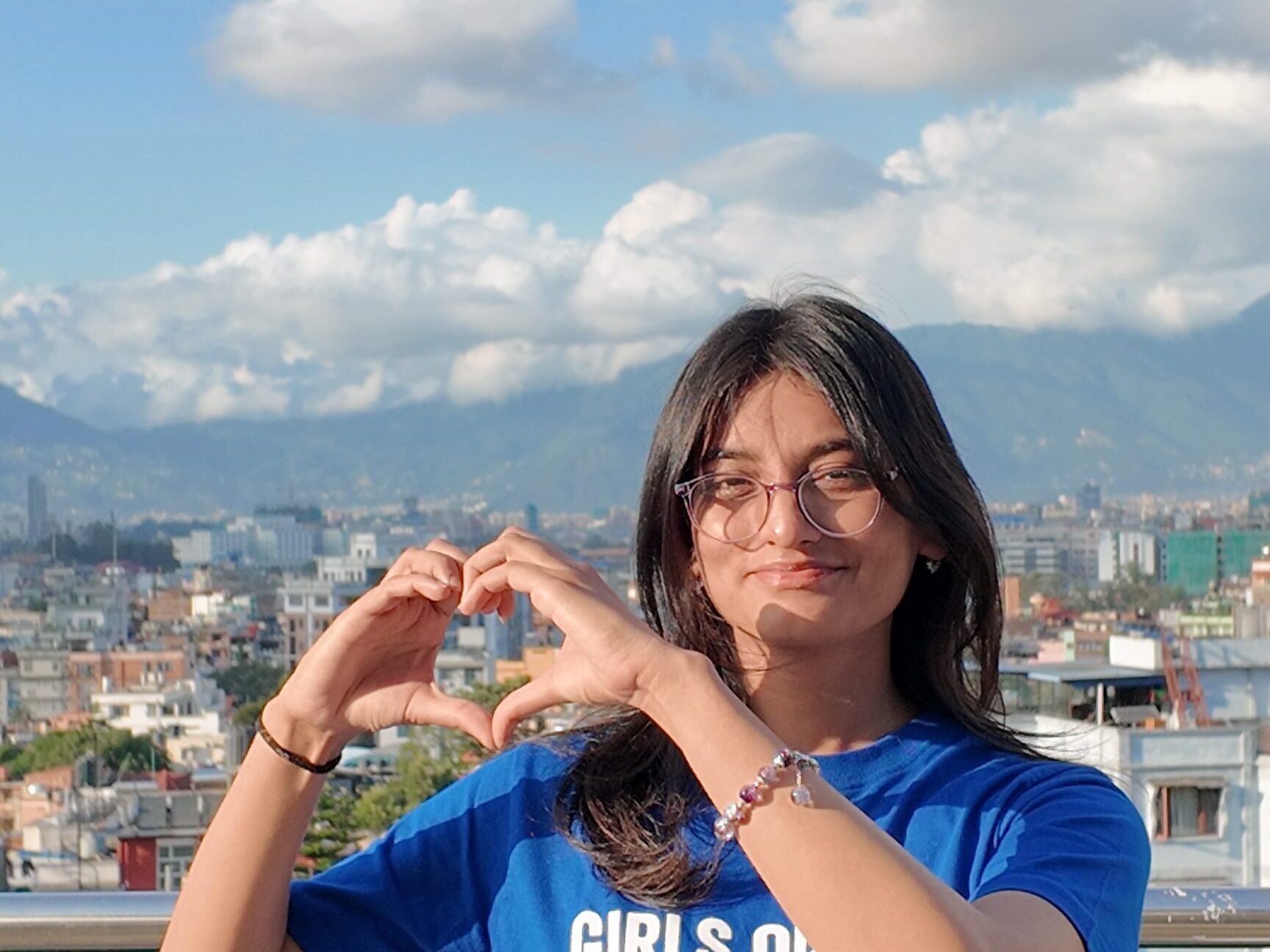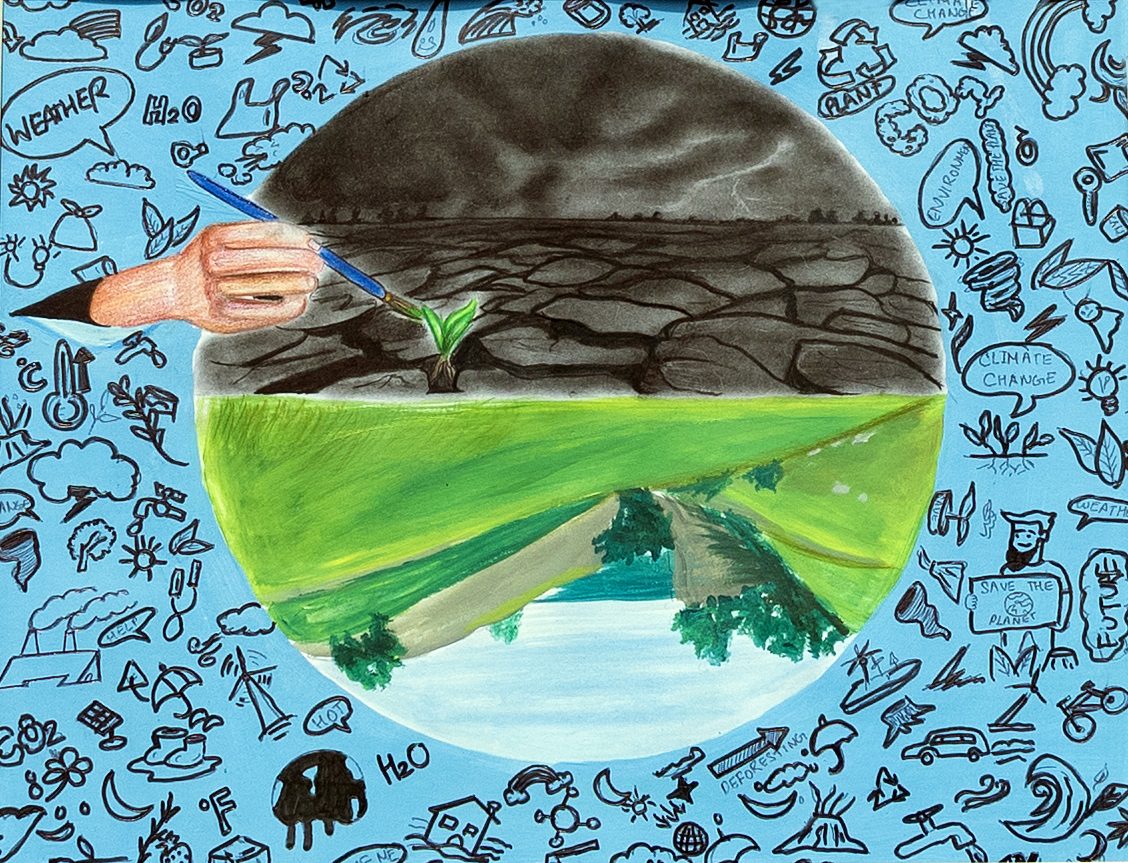Voices from a warming world
Sikha is a climate enthusiast deeply involved in raising awareness about climate justice and the impacts of climate change on vulnerable communities in Nepal. Through her work, she highlights the real-life struggles faced by farmers, women, and nature as they cope with a changing climate. This blog is part of the blogathon organised by Plan International Nepal to mark International Youth Day 2025, focusing on young voices calling for justice and action in a warming world.

By Sikha, climate enthusiast
What climate justice really means
When you hear the word “justice,” what do you picture? Maybe a woman blindfolded, holding scales, asking for fairness. Or crowds of people protesting for their rights. But what happens when you add the word “climate” before justice?
Do you imagine politicians in suits making decisions in cool offices? Or farmers with cracked feet, working dry fields under a hot sun? Do you see people with bottled water walking to their cars, or others walking barefoot for hours to collect water?
Climate justice isn’t just a phrase. It’s about real people facing daily struggles between those who have power and those who need help. This year, many in Nepal felt this through a severe drought. From July to August, rain that should have nourished rice fields never came. Instead, farmers tried to save their land by pumping water into cracked soil with motors, only to watch their crops die.
Balaram, a farmer from Koshi Province, says, “I have never seen a drought like this before. Our rice was destroyed. Now we have to plant all over again.” Dambar Bahadur adds, “The rain used to come on time. Now, it doesn’t. This drought is tough.” Dan Bahadur, who has farmed for decades, says, “There is no fertiliser or seeds. People cannot even leave their homes. This drought has made life very difficult.”
Anita’s words are the hardest to hear: “Even water from the pump didn’t soak the soil. How will we eat rice? What will we do?” Her fear and uncertainty show how the land that once feared floods now begs for rain.
The true face of climate justice
These stories remind us that those who contribute least to climate change often suffer the most. Nepal and many other countries in the global south have a very small share of greenhouse gas emissions. Yet, their communities face the harshest impacts: droughts, landslides, floods, and rising temperatures. Their resilience is inspiring, but resilience alone is not enough. Without support, it is not justice.
Climate justice is more than just targets, laws, or carbon footprints. It is about people, animals, fairness, and the future we share. It is about farmers watching their fields turn to dust. It is about children going to bed hungry. It is about families losing homes to floods or being forced to move because of unpredictable disasters. Most of those displaced by climate change, about 80%, are women.
It is also about the natural world. Fireflies that no longer light up our nights, snow leopards forced into new areas, and tiny microbes we rarely notice but need to survive. They cannot speak for themselves, but if they could, they would call out against those destroying their homes and polluting the air, water, and land. We share this planet with them, and their survival matters.
The stories of people facing climate hardship often get lost in statistics and political meetings. But these real lives are why climate justice matters. It should not be something people have to fight for; it should be a right from the start. Climate justice is not a choice; it is about survival and dignity.

Call to action
I want everyone to listen to the people who are most affected by climate change, the farmers, women, and communities living on the frontlines. I call on leaders and decision-makers to act fairly and quickly, putting people’s needs before profits. For me, climate justice means sharing resources, protecting our environment, and including all voices, especially young people and those often ignored. Staying silent is a choice that costs lives and futures. It’s time we stand together and demand real change for a safer, fairer world.
Categories: Campaigns, Emergencies


